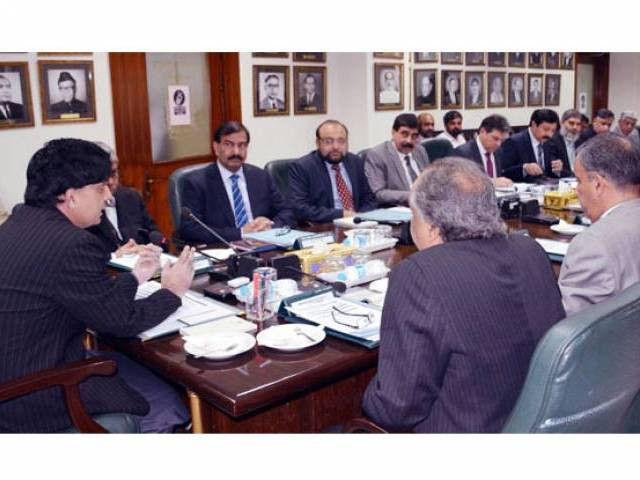A tighter grip
Interior Ministry cleared the introduction of new restrictions relating to suspects involved in terrorist acts

Interior Minister Chaudhry Nisar chairing a high-level meeting at Interior Ministry. PHOTO: INP
Those that are in the frame under the fourth schedule of the Anti-Terrorism Act (1997) may find their passports cancelled, likewise their computerised national identity cards and driving licences. They may be denied the purchase of a SIM card for their mobile phones and not able to open a new bank account either. If they are brought under the fourth schedule, they will also find that they have to register with the police ‘regularly’ at a frequency to be locally determined on a case-by-case basis. This represents a limit on both action and mobility that some may see as an infringement of civil rights, but they are a necessary move if the government really is to deliver on what it promised under the National Action Plan (NAP). There has been an undeniable improvement in the law and order situation nationally, but implementation of NAP has been inequitable. Large parts of Punjab have been untouched by NAP and extremist elements are cocking a snook at the government by openly fundraising and rallying support. This should have been stopped at the outset and the fact that it was not speaks very much to the PML-N taking a lenient view when it suited, and with a large slice of its vote bank in Punjab, it is perhaps not surprising extremism is largely unscathed. We now wish to see and hear of some prominent extremist figures and leaders finding their hitherto carefree lives more tightly constrained. Anything less and we will assume that these fine words amount to little more than window dressing.
Published in The Express Tribune, March 2nd, 2016.
Like Opinion & Editorial on Facebook, follow @ETOpEd on Twitter to receive all updates on all our daily pieces.















COMMENTS
Comments are moderated and generally will be posted if they are on-topic and not abusive.
For more information, please see our Comments FAQ